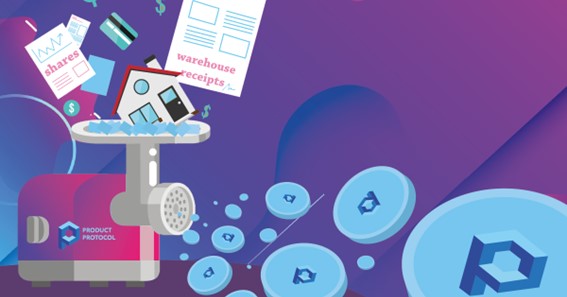The growth of bitcoin has ushered in a new realm of possibilities for changing the way investments, as well as assets, are controlled and transacted. Blockchain, the innovation responsible for the very original cryptocurrency, is a type of distributed ledger technology that opens the floodgates for many instruments of investment.
The blockchain is going to alter the economic situation and also enable a product to be quickly divided into little units, indicating ownership, leading to the democratisation of investment in traditionally insecure assets, along with creating better marketplaces. Almost everything is possible to be tokenized on a centralised ledger. If you are interested in investing in Bitcoin or crypto, you may also consider knowing about the Beginner’s Guide To Bitcoin And Crypto.
About asset tokenization
The asset tokenization technique is the procedure by which a seller makes electronic tokens on a distributed ledger or maybe blockchain which signify either physical or digital assets. Whenever you purchase tokens for a thing, blockchain assures that no individual authority can eliminate or even alter your ownership – the asset continues to be immutable.
What are the types of tokenized assets?
Fungible Token Asset
Some of the Features of fungible tokens are mentioned below:
- Divisible: A fungible coin may be split into a lot of decimal locations as were specified while it was issued. The worth and validity of each device will remain the same.
- Interchangeable: Every unit of the tokenized currency possesses an identical market value as well as validity (Bitcoin, for instance). The units of one BTC USD are precisely the same. They’re interchangeable and carry the very same worth in the marketplace. As all BTC devices are included in the very same network and possess the same functionality, it does not make a difference who bought the USD BTC.
Non-Fungible Asset Tokenization
- Non-Divisible: Usually, NFTs aren’t divisible, though F NFTs provide fractional ownership of NFTs, like in the situation of pricey good art or even industrial property.
- Unique: Each token is different and features various information and characteristics from a different token of a similar type.
What can be tokenized?
Because tokenization permits both fractional ownership as well as proof of ownership, the choices are limitless. Businesses around the world consume blockchain know-how to tokenize nearly anything, from conventional assets such as real estate money, bonds, commodities as well as sports teams, to unusual assets like celebrities as well as race horses. We divided them into four subcategories nonetheless:
- Funds: Investing money is a kind of asset that investors can tokenize, these tokens symbolise the share of the fund the investors hold. Tokens indicating every investor’s share of the fund are given to each investor.
- Asset: An asset is something which has worth that somebody can convert into cash. It’s additionally subdivided into two categories: Both business and private. Cash, as well as real property, tend to be personal possessions. The company property consists of the assets on the financial statement which are in force.
- Services: To generate funds or even do business, a company can supply services or goods. The investors may utilise the tokens to purchase the services or goods provided by the vendor.
- Equity: Tokenization could be achieved using equity (shares) Assets nevertheless, stay in the electronic form of protection tokens, which are kept in a wallet on the internet. Shares are usually purchased on an exchange.
Future of Asset Tokenization
The tokenization of asset management is altering how we conduct business these days. It makes it easier to get to markets while ensuring security and fairness. Nowadays, the single obstacle is authorised borders. Just how much this particular obstacle is going to stand in your way is dependent upon the asset you wish to tokenize. A system for trading Basketball cards may have modest hurdles when compared with a platform of high-priced paintings.







